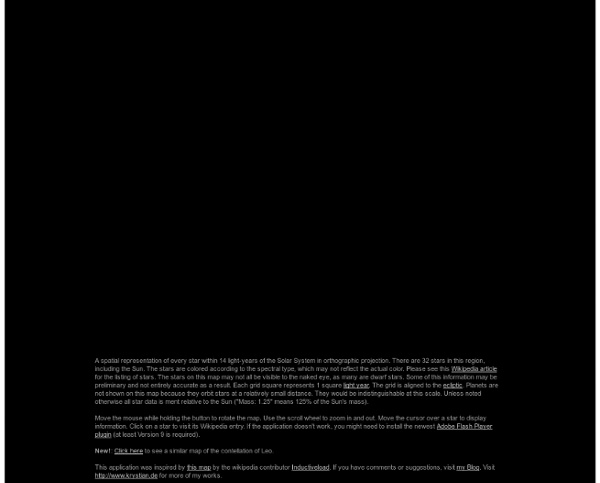



Your Age On Other Worlds Want to melt those years away? Travel to an outer planet! <div class="js-required"><hr> This Page requires a Javascript capable browser <hr></div> Fill in your birthdate below in the space indicated. The Days (And Years) Of Our Lives Looking at the numbers above, you'll immediately notice that you are different ages on the different planets. The earth is in motion. The top-like rotation of the earth on its axis is how we define the day. The revolution of the earth around the sun is how we define the year. We all learn in grade school that the planets move at differing rates around the sun. Why the huge differences in periods? Johannes Kepler Tycho Brahe Kepler briefly worked with the great Danish observational astronomer, Tycho Brahe. Here you see a planet in a very elliptical orbit. Kepler's third law is the one that interests us the most. Let's just solve for the period by taking the square root of both sides: The Gravity Of The Situation Isaac Newton ©2000 Ron Hipschman
10 Strange Things About The Universe Space The universe can be a very strange place. While groundbreaking ideas such as quantum theory, relativity and even the Earth going around the Sun might be commonly accepted now, science still continues to show that the universe contains things you might find it difficult to believe, and even more difficult to get your head around. Theoretically, the lowest temperature that can be achieved is absolute zero, exactly ?273.15°C, where the motion of all particles stops completely. However, you can never actually cool something to this temperature because, in quantum mechanics, every particle has a minimum energy, called “zero-point energy,” which you cannot get below. One of the properties of a negative-energy vacuum is that light actually travels faster in it than it does in a normal vacuum, something that may one day allow people to travel faster than the speed of light in a kind of negative-energy vacuum bubble. Relativity of Simultaneity Antimatter Retrocausality
Stellarium Randy Wayne takes new look at relativity When resolving why electrons can never beat the speed limit set by light, it might be best to forget about time. Thanks to insight from studying movement inside a biological cell, it seems that light itself -- not the relativity of time -- may be the traffic cop, according to a Cornell biologist. Any space with a temperature above absolute zero consists of photons. As a result of the Doppler effect, the moving electron experiences the photons crashing into the front of it as being blue-shifted, and the photons colliding with the back of it as being red-shifted. Since blue-shifted photons exert more momentum than red-shifted photons, the photons themselves exert a counterforce on the moving electron, just as the cytoplasm in a cell exerts a viscous force on the moving organelles.
Planet Hunting, Down to Earth Credit: European Southern Observatory Two teams of researchers are now competing to develop a device that could profoundly change our understanding of the universe…but you’d be forgiven if you mistook it for a vaguely menacing hair-restoration product. Called a “laser frequency comb,” these are special laser systems that rapidly emit pulses of light across a wide range of frequencies or colors. In a plot of the emitted light, each distinct frequency appears as a peak; collectively, all the frequencies resemble a fine-toothed comb. And by examining starlight through the teeth of a laser comb, astronomers could begin finding Earth-like extrasolar planets on the cheap using ground-based observatories rather than expensive space telescopes. A star’s spectrum, its component colors of light, can reveal whether or not it has planets circling it. Laser combs could change all that by providing a standardized—and exceedingly precise—way of measuring Doppler shifts from stars’ spectra.
The Elegant Universe: Pt 1 The Elegant Universe: Part 3 PBS Airdate: November 4, 2003 NARRATOR: Now, on NOVA, take a thrill ride into a world stranger than science fiction, where you play the game by breaking some rules, where a new view of the universe pushes you beyond the limits of your wildest imagination. BRIAN GREENE (Columbia University): And no matter how many times I come here, I never seem to get used to it. NARRATOR: Can he help us solve the greatest puzzle of modern physics—that our understanding of the universe is based on two sets of laws that don't agree? NARRATOR: Resolving that contradiction eluded even Einstein, who made it his final quest. BRIAN GREENE: We really may live in a universe with more dimensions than meet the eye. AMANDA PEET (University of Toronto): People who have said that there were extra dimensions of space have been labeled crackpots, or people who are bananas. NARRATOR: A mirage of science and mathematics or the ultimate theory of everything? S. We see 400 employees in three years.